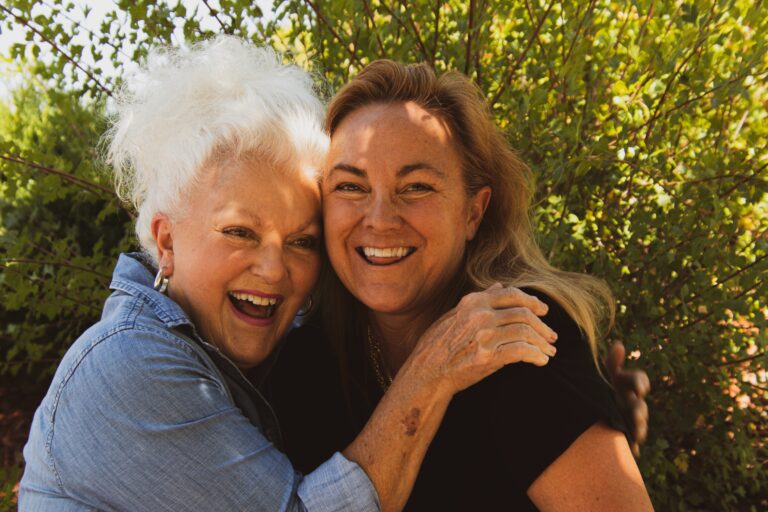The moment a loved one needs help at home, the first big question usually pops up fast:
“Do we hire someone ourselves or go through an agency?”
At first glance, it might seem like a wallet decision.
Hire on your own, maybe you find someone for $20 an hour.
Go through an agency, and you might see $35 an hour.
That $15 gap feels like a big deal. But here’s the tricky part. Families often compare just the hourly rate, not the true cost. Once you factor in the hidden expenses, the risks, and the time you’ll spend managing a direct hire, the “cheaper” choice may not be cheaper at all.
The Real Cost of Hiring Direct
Let’s walk through a real-life example:
- 20 hours of care each week
- $20/hour for a direct hire
- $35/hour through an agency
Base Pay Per Year
- Direct hire: $20 × 20 hours/week × 52 weeks = $20,800/year
- Agency: $35 × 20 hours/week × 52 weeks = $36,400/year
At first glance, you’re saving $15/hour, or $15,600/year. But that’s just the start. Hire directly, and you’re now the employer. That comes with extra bills and responsibilities.
- Payroll Taxes & Withholding
You’ll need to cover Social Security, Medicare, and unemployment taxes. That’s about 10% of wages, or $2,080/year for this scenario.
One daughter I spoke with thought she could skip this step until she got a notice from the IRS. “The back taxes and penalties cost more than what I thought I was saving,” she said.
- Workers’ Compensation Insurance
If the caregiver gets hurt in your home, you could be on the hook for medical bills and lost wages. In many states, coverage is required. Average cost is $3/hour, or $3,120/year.
- Liability Insurance
Covers property damage, injuries, or theft claims. Figure around $250/year.
- Recruiting, Screening & Background Checks
Posting the job, interviewing, checking references, all take time and money. Hard costs might run $150–$300, but your time is the bigger expense. And if they leave in a few months, you start all over.
A son told me he interviewed five people before finding someone he liked, only for her to move out of state after two months. “I felt like I had a second full-time job,” he said.
- Retention & Turnover Costs
Private arrangements tend to have shorter caregiver stays than agencies. Each turnover means lost time, lost continuity, and more recruiting.
- Training
Agencies handle training for dementia care, mobility help, CPR, and more. If you hire direct, you either pay for training or accept less experience. Expect at least $100/year.
- Backup Coverage
Caregivers get sick, have emergencies, or simply cannot make it. Agencies send replacements. With a direct hire, you may be left scrambling or missing work. Even five missed days can mean $500 in lost wages.
One family told me their mom’s caregiver called out with the flu. They had to take shifts staying with her, which meant missing work and canceling a weekend trip.
- Care Coordination & Supervision
Agencies have care managers to adjust care plans, supervise, and handle issues. With a direct hire, that is all on you, often several hours each month.
Putting the Numbers Together
Here’s how that 20-hours/week example plays out with the real costs added:
| Cost Item | Direct Hire | Agency |
| Hourly Wages | $20,800 | $36,400 |
| Payroll Taxes | $2,080 | Included |
| Workers’ Comp | $3,120 | Included |
| Liability Insurance | $250 | Included |
| Recruiting/Background Checks | $150 | Included |
| Training | $100 | Included |
| Backup Coverage | $500 | Included |
| Care Coordination | Your time | Included |
| Total | $27,000+ | $36,400 |
The Per-Hour Reality
With everything included:
- Direct hire: about $25.96/hour
- Agency: exactly $35/hour
Now the difference is closer to $9/hour, not $15. And that $9/hour covers:
- No employer liability
- No last-minute coverage scramble
- Professional training and oversight
- One point of contact for any issues
- Faster, safer hiring
- Better caregiver retention and consistency
- More time to be with your loved one
The Hidden Costs of “Cheaper”
Beyond dollars, a direct hire also brings:
- Legal risks if you misclassify the caregiver
- Liability if there is an injury and no workers’ comp
- Potential weeks without coverage if they quit suddenly
- Ongoing time managing payroll, schedules, and performance
When Hiring Direct Can Work
Direct hire might make sense if you:
- Have experience managing employees
- Have reliable backup caregivers
- Can handle payroll, taxes, and compliance
- Are willing to cover shifts yourself when needed
When an Agency is the Smarter Move
Agencies cost more per hour, but they often save money, time, and stress by:
- Handling all employer responsibilities
- Providing vetted, trained caregivers quickly
- Guaranteeing coverage when someone calls out
- Coordinating care and supervising staff
- Reducing turnover for more consistent care
What Decision Is In Your Best Interest When Hiring a Caregiver
The $20 vs. $35/hour comparison does not tell the whole story.
When you add in taxes, insurance, training, turnover, and your time, the gap shrinks, and what you get for that $9/hour can mean fewer headaches, more consistency, and the peace of mind that someone else is managing the details.
If your goal is to spend time with your loved one instead of running your own mini home care operation, an agency is usually worth the investment. And if you know you do not want the added stress of managing payroll, finding backups, and handling supervision on top of caregiving, it may be time to seriously consider going through an agency.




